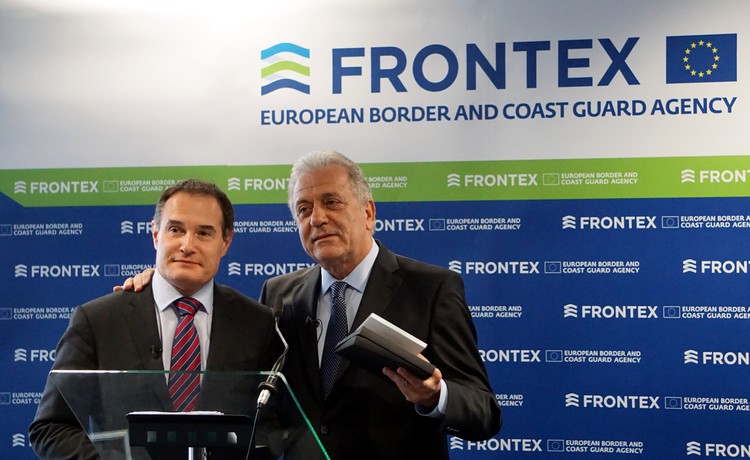Frontex, the European Border and Coast Guard Agency, welcomed Migration, Home Affairs and Citizenship Commissioner Dimitris Avramopoulos at its Warsaw headquarters today.
News
Commissioner Avramopoulos visits Frontex, the European Border and Coast Guard Agency
2017-03-21

Under Commissioner Avramopoulos’ mandate, the European Commission tabled in December 2015 a new regulation to give Frontex a broader mandate in order to tackle the increasing challenges at the EU’s external borders. After only six months of political negotiations, the Council and the European Parliament adopted new tasks and competences for Frontex in the framework of the European Border and Coast Guard, entrusting the Agency with a broader responsibility in the management of the external borders of the EU.
Earlier this month, the Agency signed a new headquarters agreement with the Polish government, defining the legal status for the Agency and its employees in Poland.
“Commissioner Avramopoulos was one of the architects of the European Border and Coast Guard and his first visit to our premises highlights his support for the expansion of our role in migration management and border security over the coming months and years,” said the Agency’s Executive Director Fabrice Leggeri.
Commissioner Avramopoulos met with the Agency’s management and staff and visited the Frontex Situation Centre (FSC), which provides an up-to-date picture of what is going on at Europe’s external borders and the migratory situation. FSC acts as a central point of contact and information access for all of the Agency’s stakeholders and is a vital part of a rapid-response mechanism in the event of an emergency situation anywhere at the external borders.
The Commissioner also saw live streaming video from a plane taking part in a new multi-purpose operation in cooperation with the European Fisheries Control Agency (EFCA) – a significant step towards expanding Frontex’s role in promoting European coast guard functions.
Under its expanded mandate, the Agency has created a rapid reaction pool to quickly react to emergencies at EU’s external borders. It also has gained new competences in return activities and is developing vulnerability assessments of all member states at their borders.
With the expansion of its role and activities, the Agency plans to increase its staffing from the current level of about 400 to 600 by the end of this year and 1000 in 2020.